Publications
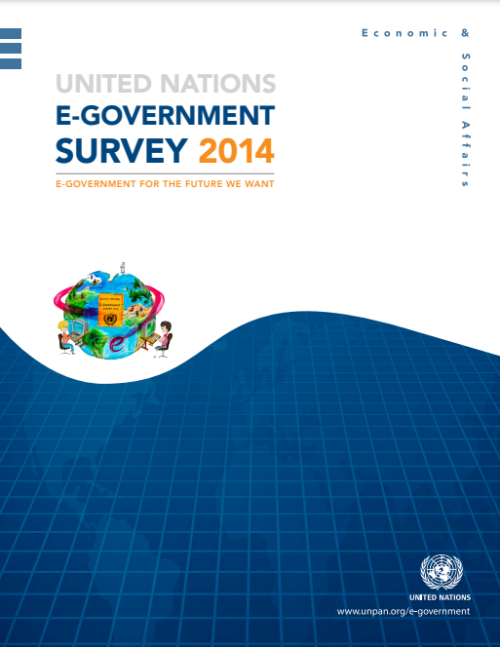
E-government—digital interactions between governments and people—varies greatly among and within regions, but most countries are making progress on providing greater access, according to the 2014 UN E-Government Survey launched today. The findings show that the Republic of Korea tops the global e-government ranking, and that Europe remains first among regions.
The report also shows that many countries are expanding electronic participation, utilizing more mobile and social media tools, expanding usage and making more government data available online. However, challenges remain, such as lack of resources, digital inequalities and a lack of leadership for e-government.
“E-…
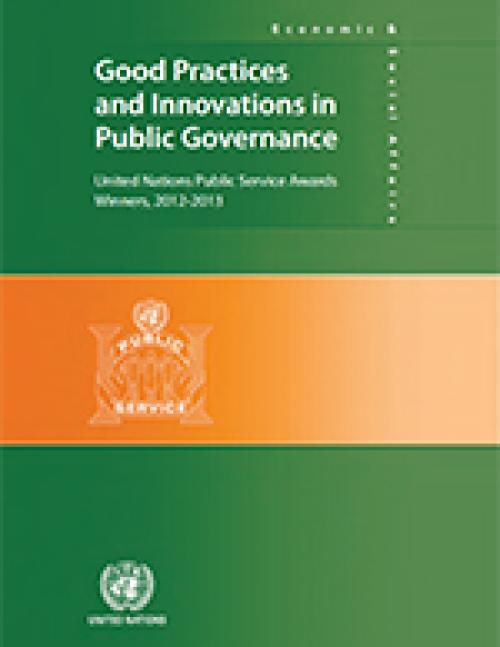
This publication provides an overview of 145 successful innovations in governance and public administration from 50 countries that received the United Nations Public Service Awards, which is the most prestigious international recognition of excellence in public service. The purpose of this book is to disseminate, through descriptive case studies, information about innovative practices by looking at the problem that led to an innovation; the solution that was designed and implemented to respond to the specific challenge; the actors and steps involved in the innovation process, and lessons learned
The United Nations has updated a set of guidelines to prevent double taxation between countries, as well as to avoid tax evasion, which costs countries $3.1 trillion every year.
The UN Model Double Taxation Convention between Developed and Developing Countries (the UN Model) is used by countries as a basis for negotiation of their bilateral tax treaties.
Double tax treaties are agreements to prevent taxing income twice by allocating taxing rights over this income between two countries. These types of treaties play a key role in encouraging investment and technology transfer, while allowing governments to retain taxing rights over the money that comes from those investments…
“The increasing role of e-government in promoting inclusive and participatory development has gone hand-in-hand with the growing demands for transparency and accountability in all regions of the world,” said Sha Zukang, UN DESA Under-Secretary-General in the newly released United Nations E-government Survey 2012.
The survey, prepared by UN DESA’s Division for Public Administration and Development Management, assesses Member States’ government web portals with a focus on the provision of e-information and e-services; these services include interactive, transactional, and e-participation features that connect governments and citizens.
Member States are ranked in accordance…
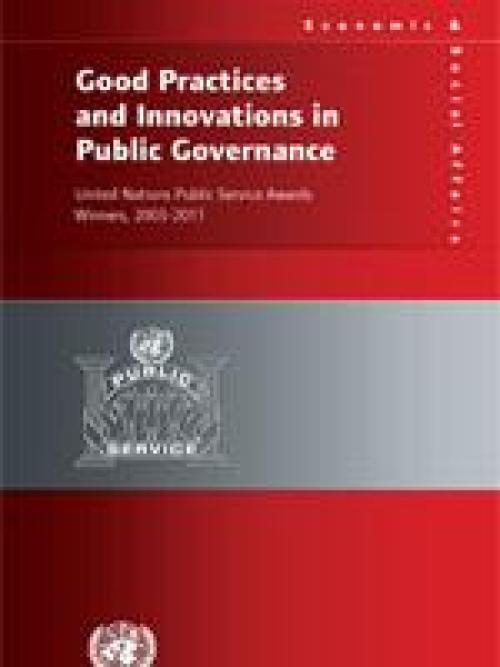
This publication provides an overview of 145 successful innovations in governance and public administration from 50 countries that received the United Nations Public Service Awards, which is the most prestigious international recognition of excellence in public service.
The purpose of the series is to disseminate, through descriptive case studies, information about innovative practices by:
(i) looking at the problem that led to an innovation;
(ii) the solution that was designed and implemented to respond to the specific challenge;
(iii) the actors and steps involved in the innovation process, and
(iv) lessons learned. Learning more about how public…
The 2010 United Nations e-Government Survey: Leveraging e-government at a time of financial and economic crisis was completed in December 2009 and launched in early 2010. The report presented various roles for e-government in addressing the ongoing world financial and economic crisis. The public trust that is gained through transparency can be further enhanced through the free sharing of government data based on open standards.
The present report recognizes that further progress has been made towards fulfilling the promises embodied in Millennium Development Goal 8 (MDG 8). At the same time, it identifies important setbacks, most of which have arisen from the current state of the world economy which is suffering its severest downturn since the Great Depression of the 1930s. Some donor countries are cutting their budgets for official development assistance (ODA); several developed and developing countries have resorted to protectionist measures; resurging debt distress is increasing the need for further and broader debt relief; the costs of essential medicines are on the rise; and the technological divide…
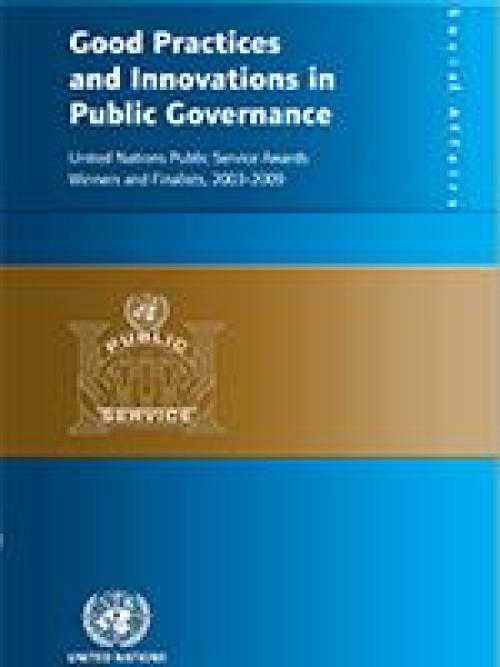
This publication provides an overview of 85 successful innovations in governance and public administration from 40 countries that received the United Nations Public Service Awards, which is the most prestigious international recognition of excellence in public service. The purpose of this book is to disseminate, through descriptive case studies, information about innovative practices by looking at the problem that led to an innovation; the solution that was designed and implemented to respond to the specific challenge; the actors and steps involved in the innovation process, and lessons learned. Learning more about how public institutions from around the world have solved difficult…
The MDG Gap Task Force has assessed the global commitments contained in the framework of the Millennium Development Goals (MDGs) ratified by Governments as the various international events that followed the Millennium Summit. The United Nations Millennium Declaration emphasized that strengthened global partnerships for development were needed to provide the enabling environment for accelerating progress in reducing poverty, improving health and education, establishing gender equality and ensuring the protection of the environment as defined in the MDGs.
The main message of the present report is that while there has been progress on several counts, important gaps remain in…
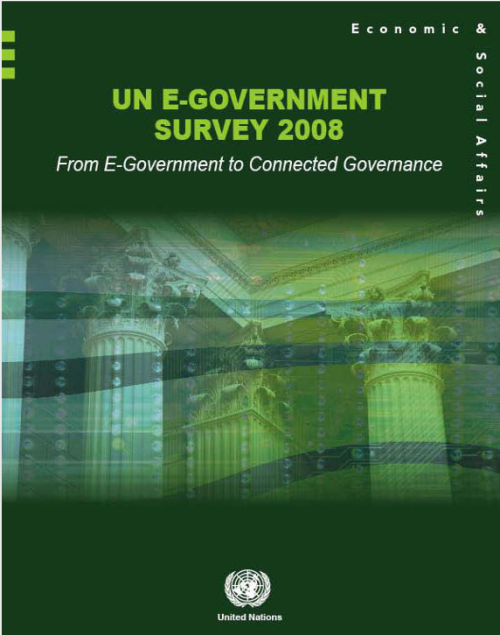
The UN E-Government Survey 2008: From E-Government to Connected Governance assesses the E-Government Development of the 192 Member States of the UN according to a quantitative composite index of e-readiness based on website assessment, telecommunication infrastructure, and human resource endowment. ICTs can help reinvent government in such a way that existing institutional arrangements can be restructured and new innovative arrangements can flourish, paving the way for a transformed government.
The focus of the report this year, in Part II, is e-government initiatives directed at improving operational efficiency through the integration of back-office functions. Whilst such…
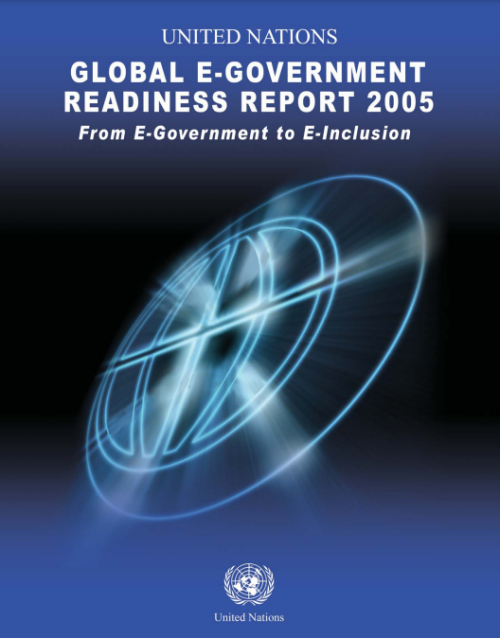
The spread of information technologies to a select group of people in the world is worsening disparities between the e-haves and the e-have-nots. There is a danger that unequal diffusion of technology, far from fomenting cohesion by providing opportunity, will result in reinforcing the traditional patterns of economic and social inequalities which will lead to a weakening of social bonds and cultural organization.
Exploring the interlinkages between e-government and human development, Part II of the UN Global E-Government Development Report 2005 points to the need to place development thinking within what it terms as the Socially Inclusive…
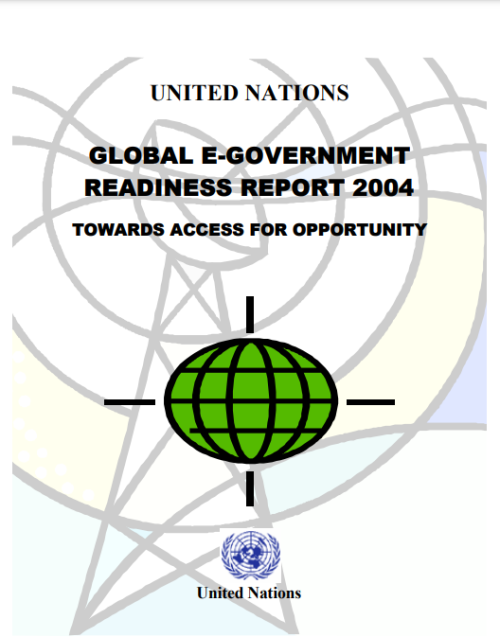
Economic and social empowerment today rests on the ability to access, gather, analyze and utilize information and knowledge to widen individual choices for political, economic, social, cultural and behavioral decisions. ICTs are the conduits which transmit information and knowledge. By integrating technology into development planning, more effective and speedy solutions can be found for economic growth and sustainable human development. However, the reality is that access to - and the distribution of - the tools for knowledge and wealth creation are highly unequal both among, and between, countries of the world. The disparities in access to ICT-related…
 Welcome to the United Nations
Welcome to the United Nations